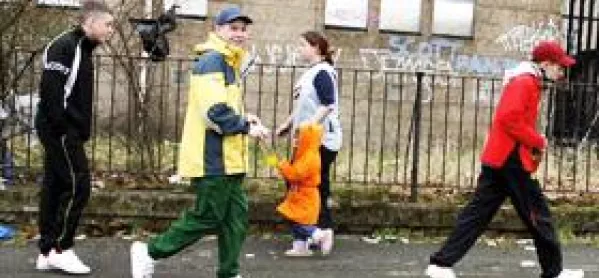Let us widen the participation net, universities plead

More than 600 people from disadvantaged backgrounds have benefited from a new scheme designed to open up access to Scotland’s most selective universities, a report reveals.
In 2013-14, universities filled 84 per cent of the extra places that the Scottish Funding Council (SFC) funded for learners from the most deprived 40 per cent of postcodes.
However, one in seven places was not taken up and critics have called for the scheme to be widened to include a broader range of under-represented young people.
The figures, from the SFC’s annual report and accounts (bit.lyAnnualReportSFC), come as first minister Nicola Sturgeon has made widening access to higher education for less advantaged young people a priority for her government for 2014-15.
The SFC report says: “The percentage of learners from the most deprived postcodes going to university has increased and more of these learners are being retained. In addition, university recruitment of pupils from schools where few pupils go to university has also increased.”
However, the document also stresses that the SFC could do more to improve access to all universities.
The SFC told TESS that the money for unfilled places would be used to fund articulation places. These allow students to go from a college qualification straight into the second or third year of a degree.
A spokeswoman said: “The places for 2013-14 were allocated by the SFC outside of universities’ usual recruitment times and we recognise that this created problems in advertising and filling them. However, only three universities did not use their full allocation in 2013-14, for a variety of reasons, including overestimating the demand in their areas.”
Universities Scotland also stressed that the unfilled places were not the result of inactivity or a lack of interest on the part of the institutions involved, saying that despite the difficult timing, hundreds of students had been recruited.
Director Alastair Sim said that universities were “deeply committed to widening access” and had been eager to show this when the places for students from deprived areas were created.
“The additional places were made available to universities in January, at the point most people have [already] applied to university,” he explained. “But despite this, universities aimed high and recruited more than 600 students from areas of the greatest deprivation in Scotland. Those students are now working towards their degrees.”
He added that universities worked with a wide range of pupils from low participation schools as well as students who would be the first in their families to go on to higher education. Although many such candidates were keen to join the scheme, they were not eligible under the widening access criteria used by the Scottish government and the SFC.
“Consideration should be given to broadening the criteria so that universities can deliver on the shared goal of admitting as many bright and ambitious under-represented people into university as possible,” Mr Sim said.
Last week, Ms Sturgeon released her programme for government, entitled One Scotland, which includes a pledge to “begin work on a new target to close the equality gap in terms of university access”.
A Commission on Widening Access will be set up to advise the government on how to work towards that goal, the report says. Funding for the SFC’s Impact for Access Fund will also be doubled in 2015-16 to boost local widening access initiatives.
Gordon Maloney, president of NUS Scotland, said the creation of additional places for widening access and articulation had been a significant achievement, “and one that NUS Scotland campaigned hard for”.
“While it’s great that we are seeing increased numbers of students articulating, and enabled to do so with these extra places, that needs to come with a concerted effort to make sure it happens to its full extent,” he added. “It’s disappointing if not all the available places are being filled.
“We’ve made huge ground on securing extra places and funding for fair access, and now we need to ensure that local efforts are in place to match that, doing all we can to boost numbers.”
Keep reading for just £1 per month
You've reached your limit of free articles this month. Subscribe for £1 per month for three months and get:
- Unlimited access to all Tes magazine content
- Exclusive subscriber-only stories
- Award-winning email newsletters



